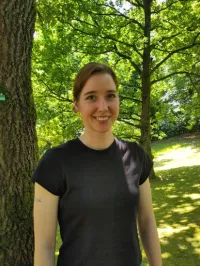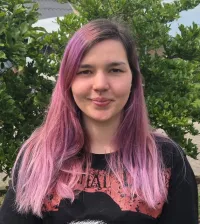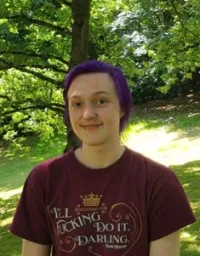What made you choose this degree programme?
I have always had a great passion for languages. It was clear to me that I wanted to focus less on language in the literary/literary studies sense and more on language itself, its function and its structure.
In which respect have or haven’t your expectations been fulfilled?
My expectations were met, and even exceeded, particularly in the field of computational linguistics. You start programming in the first semester, which I enjoyed. The programming component increases as the course progresses, allowing you to tackle more complex topics such as LLMs (large language models) and neural networks later on.
On the other hand, a few areas that I had expected to cover were not included. For example, historical linguistics (language development over time) or stylistics (individual language use, e.g. everyday language).
The content was different than I had expected, but in a positive way.
Which aspect of your degree programme do you enjoy most?
I enjoy analysing linguistic phenomena, deriving rules from them and applying these rules to various texts using a program I wrote myself.
What has been your biggest challenge to date?
Getting started with academic writing in the Basic Methods module, where you have to collect and evaluate data yourself for the first time in order to derive correlations from it.
What would you like to become after completing your degree?
My focus is on computational linguistics. In the future, I hope to work in software development to create software that makes life more accessible for everyone.
Computational linguistics is much more than LLMs (large language models such as ChatGPT).
Which advice would you like to give to students who consider enrolling in this degree programme?
Don't be put off by the relatively small size of the programme. This is actually an advantage, as it allows you to ask your own questions and discuss topics/papers/research with lecturers who are closely involved in research.


